Summary
Bustan El Zeitoun in Lebanon is reviving the ancient olive oil culture by cultivating a variety of olive trees, including imported Italian varieties, in a region with a rich history of olive cultivation. The company focuses on producing high-quality extra virgin olive oil, promoting local cuisine pairings, and preserving traditional healing properties associated with olives and olive oil.
In the cradle of olive cultivation, the producer behind Bustan El Zeitoun thrives on the spiritual connection he shares with the land, its history and its people.
Overlooking the coastal city of Sidon, 40 kilometers south of the Lebanese capital of Beirut, Bustan El Zeitoun is infusing Lebanon’s ancient olive oil culture with imported olive varieties.
“In this region, mankind began cultivating the olive trees millennia ago,” founder Walid Mushantaf told Olive Oil Times. “They grew olives and cedars and exported their products to Carthage, Italy and the Middle East.”
See Also:Producer Profiles
“Given all the troubles Lebanon has gone through over the last few decades, we are very proud today to craft world-class extra virgin olive oil,” he added.
In the vicinities of Mushantaf’s native Aabra village, 30 hectares of olive groves were planted after 2011 to reclaim the land initially destined to become a construction site.
Today, more than 6,000 olive trees stand tall in the area, with local olive tree cultivars sharing the grove with varieties imported from Italy.
“In Lebanon, we have several olive cultivars such as Souri or Baladi,” Mushantaf said. “Our ancestors adopted them, and the DNA of all Lebanese varieties is almost the same.”
“We imported 12 new varieties from Italy and planted them in our village, letting them thrive in a different soil, under different conditions,” he added.
Among the best-adapted Italian cultivars in the area is Itrana, with which the company earned a Gold Award at the 2023 NYIOOC World Olive Oil Competition.
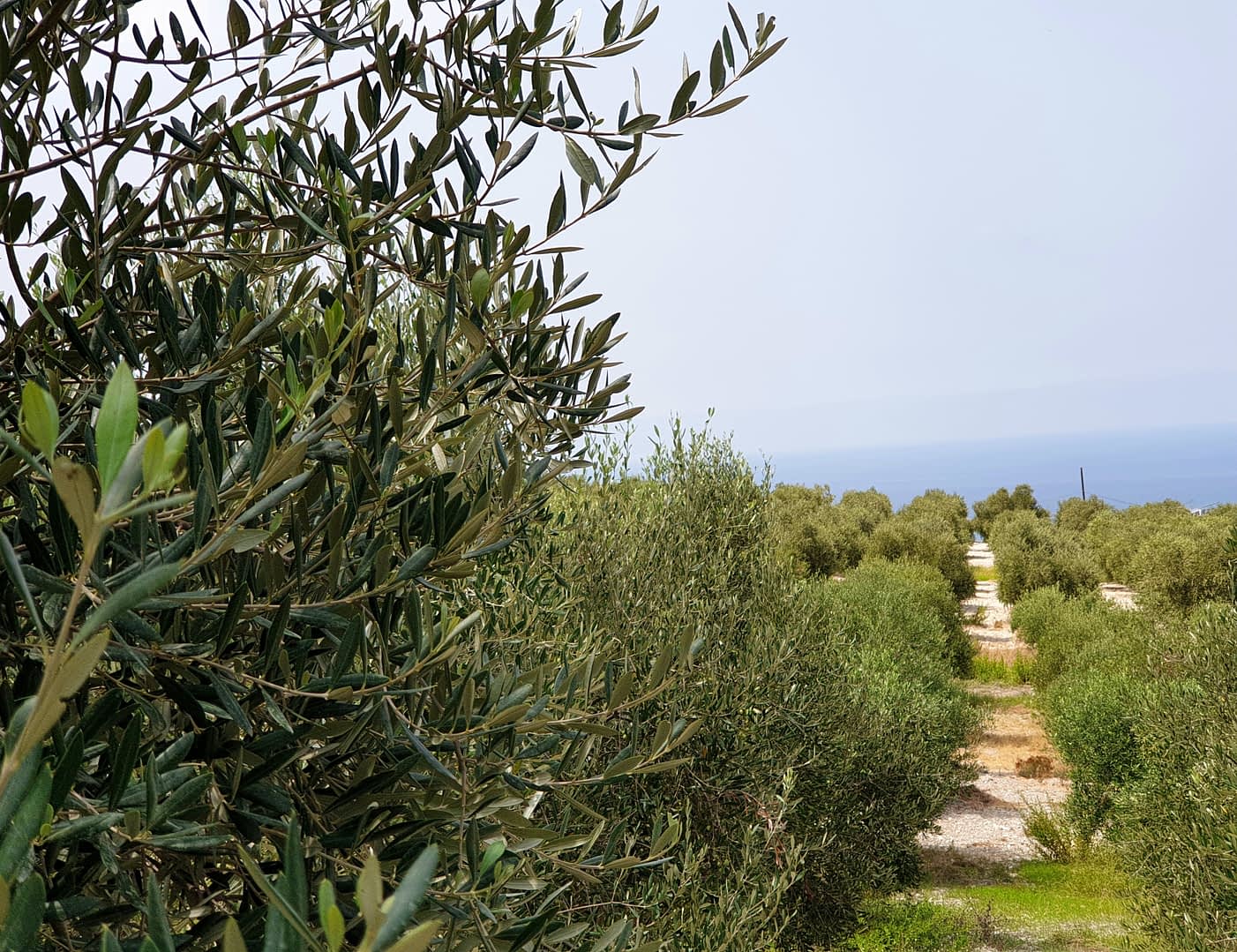 Bustan El Zeitoun grows 6,000 olive trees, including 12 local and Italian varieties.
Bustan El Zeitoun grows 6,000 olive trees, including 12 local and Italian varieties.
“Since 2017, we started participating in local, national and international competitions, winning a Gold Award in New York in 2018,” Mushantaf said. Every year, we challenge ourselves to offer a different kind of monovarietal. Our first win was with Frantoio.”
“Itrana is always good because of its fruitiness, flavors and perfect balance,” he added. “It can produce both olive oil and table olives. We do not have many, maybe 150 or 160 trees of that variety.”
Besides Frantoio and Itrana, Mushantaf also grows the Tuscan varieties of Leccino, Maurino and Pendolino.
“We also have Coratina from Puglia, Biancolilla and Nocellara del Belice from Sicily and Bianchera from northeastern Italy,” he said.
The differences in the resulting olive oils serve the company’s goals.
“Some of the non-local olive oils mix perfectly with our traditional cuisine, flavors to which most people are comfortable with, as they are close to what they are used to,” Mushantaf said.
“Some of them are also very different,” he added. “Which means that in Lebanon, we are more or less the only one producing them, and we have produced them only as monocultivar extra virgin olive oil since the beginning.”
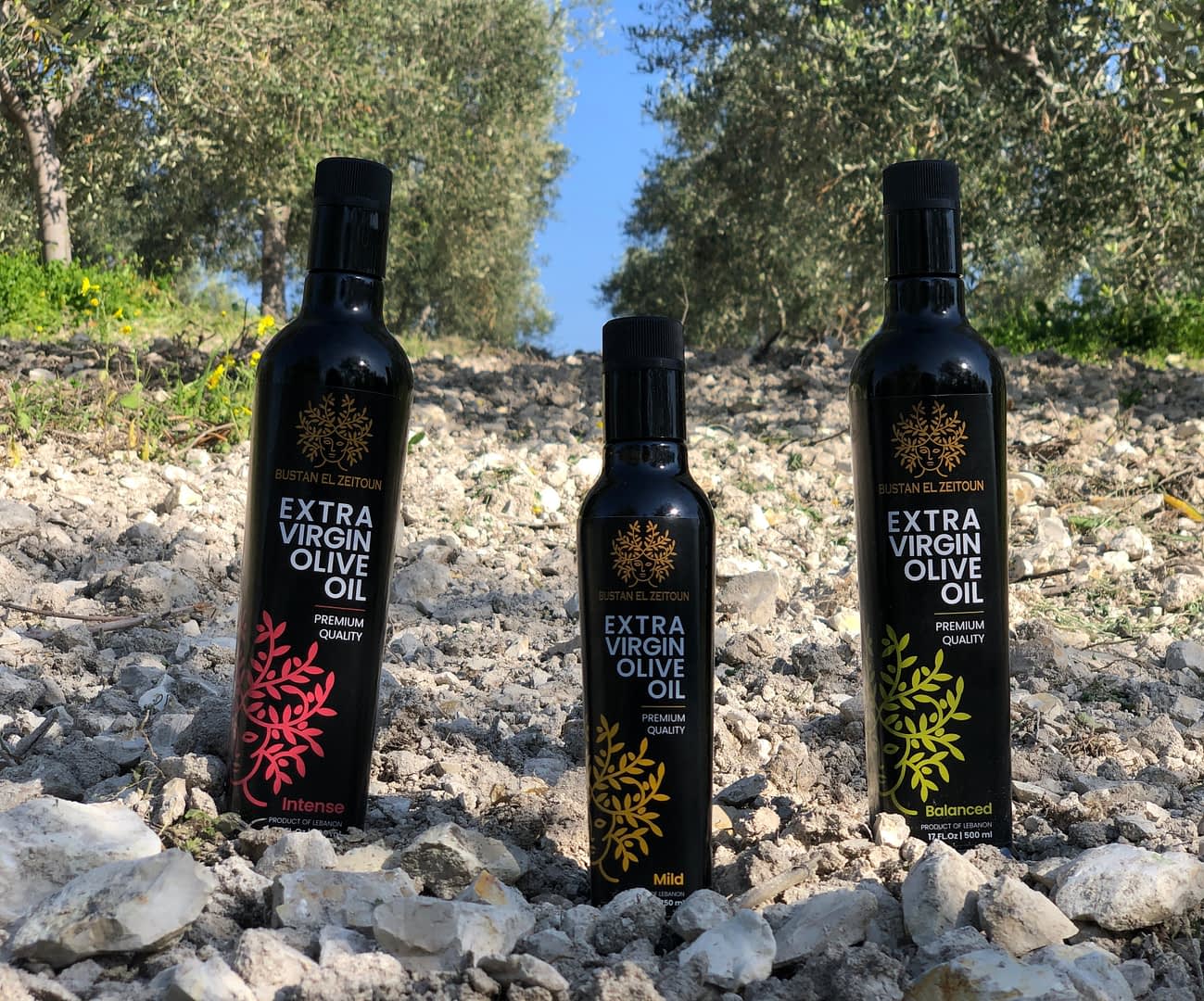 The company produces mild, balanced and intense extra virgin olive oils.
The company produces mild, balanced and intense extra virgin olive oils.
Each olive oil is marketed starting from its profile. “We sell them as mild, balanced or intense,” Mushantaf said. “People in Lebanon are not used to varieties, as they are in other countries or among experts. Here, locally, you need to market olive oils differently.”
The new trend in the country’s ancient olive oil culture comes from pairing these olive oils with the local cuisine. The company promotes events and opportunities to taste such pairings.
“Thanks to the hard work of chefs, Italian and French restaurants, even those flavors that many are not used to can finally reach the market and open new cuisine opportunities,” he said.
To local consumers, flavors and novelty are only some of the reasons to prefer and explore olive oils.
“Olive oil and the olive tree are deeply nested in our culture,” Mushantaf said. “We associate them with peace and health, as their healing properties were known since ancient times.”
“Our groves grow in the vicinities of the Temple of Eshmun, god of healing in the Phoenician tradition,” he added. “We connect to that, as our ancestors knew of olives as a source of healing.”
“They knew how good olive oil was long before the scientific research that assesses all the details of its therapeutic impact,” Mushantaf continued.
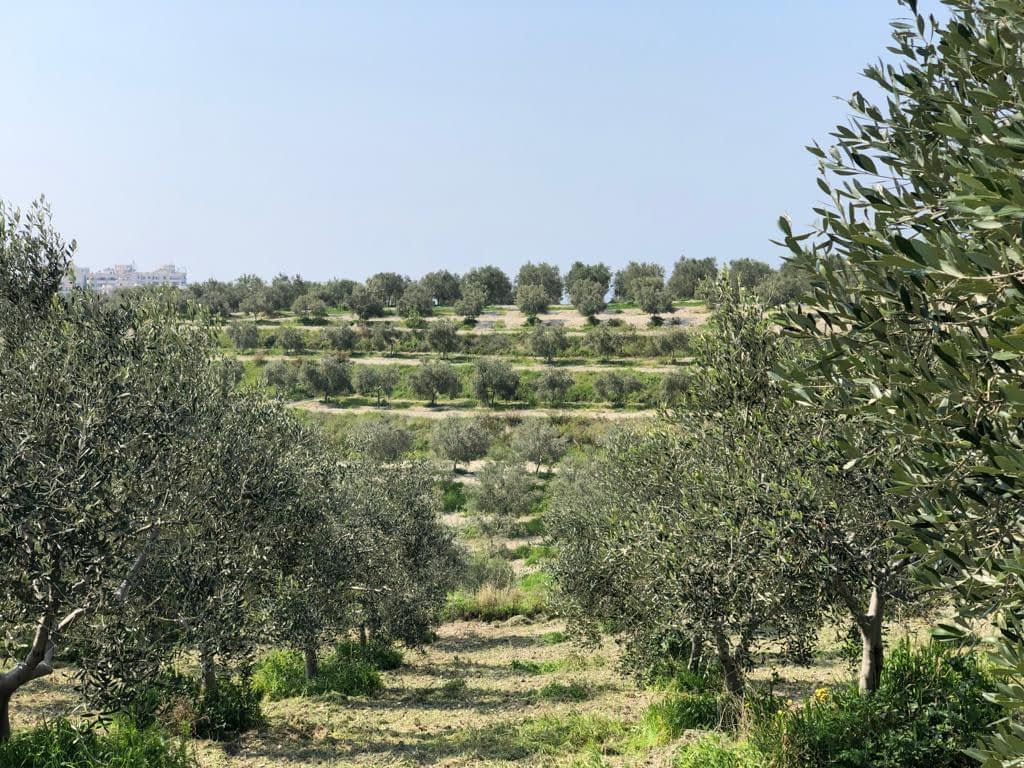 Near the historic Temple of Eshmun, Bustan El Zeitoun has adopted a range of modern agronomic and milling practices.
Near the historic Temple of Eshmun, Bustan El Zeitoun has adopted a range of modern agronomic and milling practices.
After a 15-year civil war, war with neighboring Israel and economic disruption, the traditional awareness about olive oil’s health benefits and the knowledge about olive farming were partially forgotten.
“We had to learn it again, thanks to science, re-learning how good olive oil is for our health,” Mushantaf said. “At the same time, we also learned the best practices in the groves and how to transform olives and produce high-quality extra virgin olive oil again. Today, we follow a scientific-based approach to achieve the best quality.”
“We now have our own mill, based on Italian technology, so we can configure and set up the whole transformation process how we prefer,” he added. “It is a new generation two-phase olive oil mill which requires only minimum amounts of water to operate and can guarantee excellence.”
Besides hand-picking the olives to reduce potential impacts on the fruits, only the best fruits are sent to the mill. Before being transformed, their temperature is lowered by refrigeration. “We aim to preserve the highest quality of flavors and healthy contents,” Mushantaf said.
The current season is not looking to be as good as previous ones.
“Through these years, we had good seasons, average seasons, but this season is not very good,” he said. “Part of the reason is that during winter, we had warm weather and a big infestation of insects.”
“It will be challenging in terms of quantity, as we discard whichever fruits are unhealthy,” he added. “We will still make excellent olive oils, but we know we will lose a lot of quantity.”
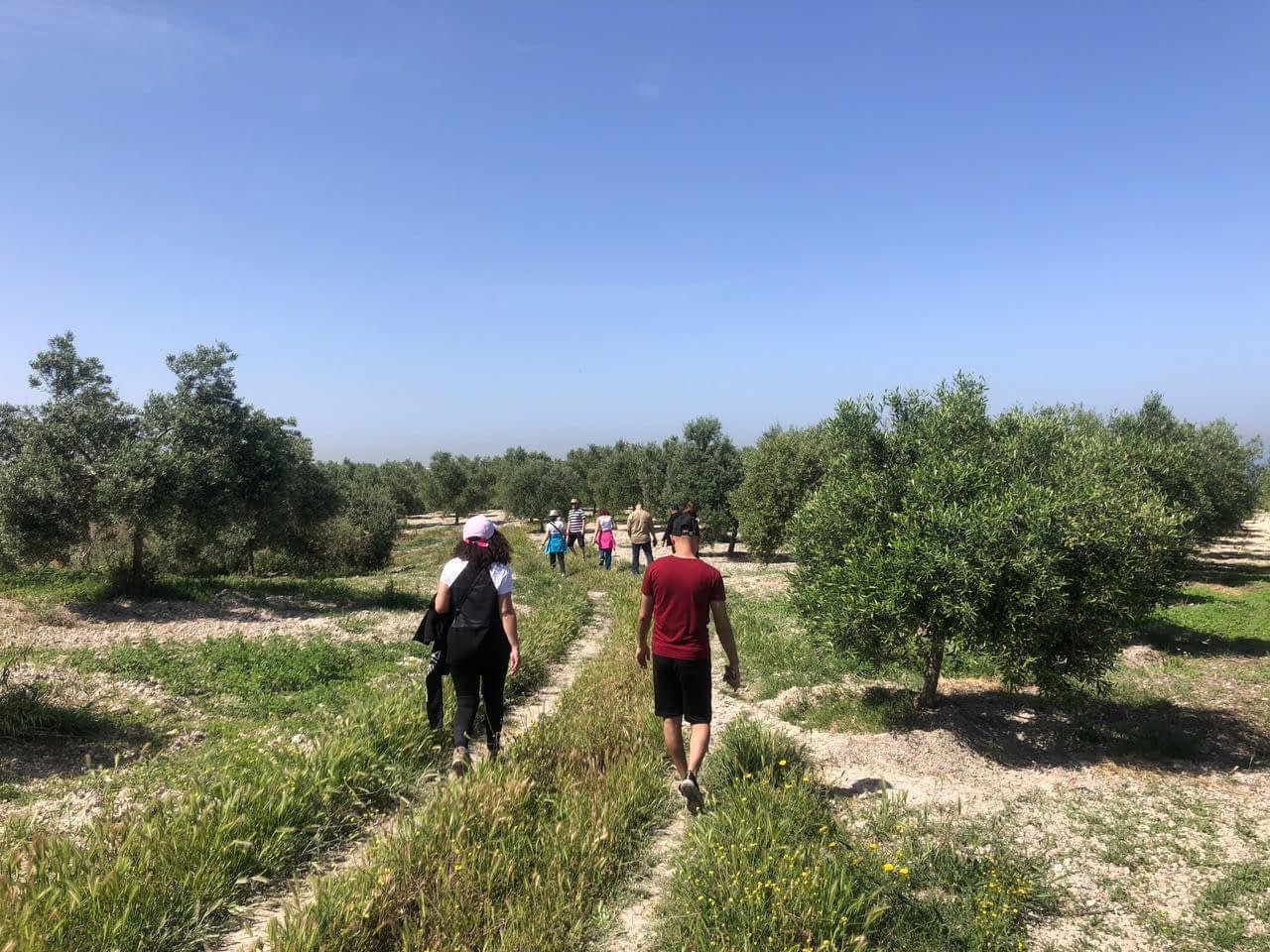 As the city expands, more people visit Bustan El Zeitoun’s groves to enjoy the natural surroundings.
As the city expands, more people visit Bustan El Zeitoun’s groves to enjoy the natural surroundings.
The company adopted environmentally friendly practices and a green approach to its olive farming. “This means that you will find not only our olive trees but a lot of vegetation,” Mushantaf said.
Since the start, the company has involved the local community. “Today, we have a beautiful green space shared with the community,” Mushantaf said. “People come here to walk in nature, do sports, meet.”
“We have students helping us harvest every year,” he added. “We bring them to the mill to learn. We also have hiking programs, roses which can be picked and other products and activities.”
“Everybody now sees Bustan El Zeitoun as a paradise,” Mushantaf concluded. “As the nearest big city spreads further, the olives and their surroundings are seen as a unique nature opportunity.”

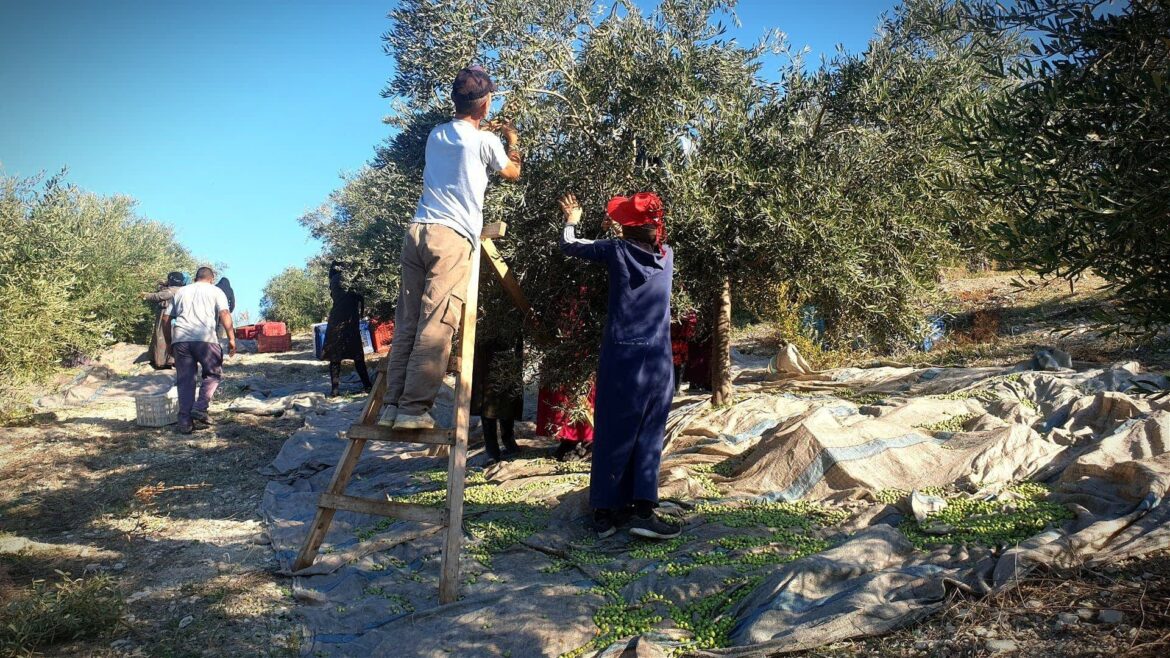
Dining and Cooking